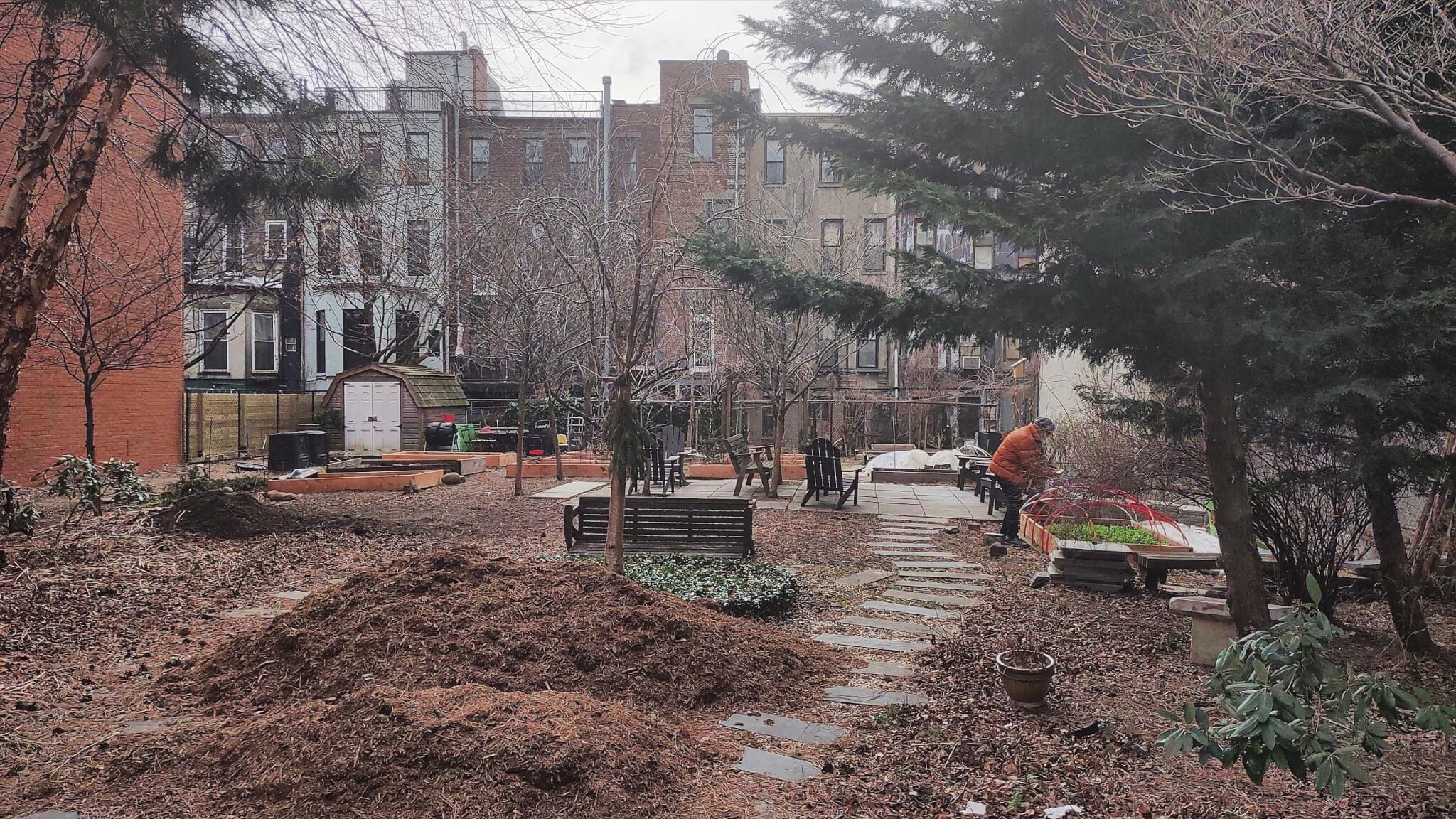New York City has historically been a city at the front lines of housing justice and tenant activism. One of the entities at the forefront of this are Community Land Trusts (CLTs), of which there are 15 of in the city. Today, CLTs and alliances working alongside them are working hard to pass the Community Land Act (CLA), a proposed legislative package aimed to give CLTs more power (or really, level the playing field) when buying land or buildings.
So, what is a CLT anyway? CLTs were conceived in 1969 by New Communities in Lee County, Georgia, to help Black farmers who participated in the Civil Rights Movement and were unjustly evicted from their homes for it. A CLT ensures homes are made or maintained at affordable rates. They involve buying land through the trust, taking it off the market, and then individually selling the homes at a below-market rate, with the community maintaining control over their land and developing it as they see fit.
Will Spisak, senior program associate at the New Economy Project, a founding organization of CLT advocacy group New York City Community Land Initiative (NYCCLI), told AN that, “one of the persistent challenges that new and existing CLTs face is acquisition.” This issue is one of several the proposed Community Land Act (CLA) aims to address. This bundle is poised to provide many needed protections and resources to CLTs throughout New York, and the NYCCLI has worked alongside council members and bill makers to ensure clarity of language in each. According to Spisak, “We envision the package, as a way of framing the conversation demonstrating the connection between what we’re trying to do with public land, with private land.”
In order to gain broad support and strengthen the reach of their campaign, NYCCLI has worked with the CLT groups across the city, and asked questions like, “What are ways we can make it easier for CLTs to acquire land to take more land off the speculative market? Preserve deep affordability? What are the tools other cities have used, or that we can tweak here in New York to make it easier for CLTs to expand and grow that pipeline of properties coming to community land trusts?” Spisak said.

The package contains four separate bills poised to give CLTs equal power when buying land or buildings. The first two specifically center on property in New York City. The Community Opportunity to Purchase Act (COPA) and Public Land for Public Good will give CLTs first priority when a landlord sells a building or when the city disposes of public land. This gives CLTs a chance to make an offer on the property, which is a big step in a the context of a real estate system that has historically prioritized developers with deeper pockets. The legislation also slows the selling process, which may be tedious for developers, but invaluable for smaller holders and CLT tenants.
“When you compare the records, nonprofit developers have a better track record of developing deeply affordable housing significantly better,” Spisak added. “[Nonprofits and developers] have access to the same resources, the same government programs, the same loans and grant programs. But nonprofits continue to build deeper affordability.”
At the state level, the Tenant Opportunity to Purchase Act (TOPA) proposes giving property owners first dibs on their building when their landlord sells. Should both pass, in jurisdictions where COPA is also enacted, as a state law TOPA will take precedence.
According to Spisak, the bill package will be proposed again in the next council session.
To get involved with CLTs, find or join a local one and then have your organization endorse the CLA. Other ways to support include emailing your council member to encourage them to sponsor the legislation.











